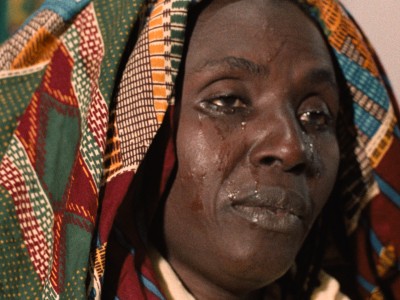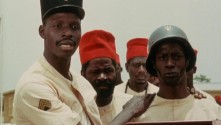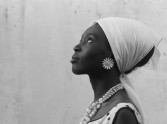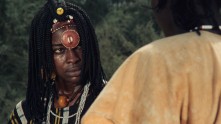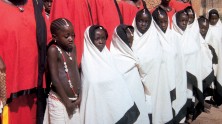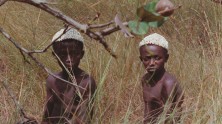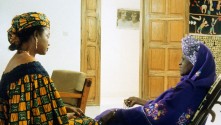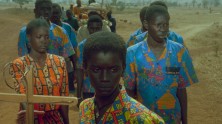
Moolaadé
With Fatoumata Coulibaly, Maimouna Hélène Diarra, Salimata Traoré.
Senegal/Burkina Faso/Morocco/Tunisia/Cameroon/France, 2004, 35mm, color, 124 min.
Bambara and French with English subtitles.
Print source: Yale Film Archive
Filmed in Burkina Faso with a pan-African cast and crew, the Prix Un Certain Regard winner Moolaadé was considered by Sembène to be his most African film. A rural counterpart to Faat Kiné, it is the second film in Sembène’s trilogy about everyday heroism. In a Bambara village, a group of girls escape female genital mutilation and take refuge under the magical protection—or the moolaadé—of Collé (Malian journalist and activist Fatoumata Coulibaly), a woman who has long opposed the practice. Collé’s courage inspires an awakening among the women, causing the men to retaliate with violence. Despite the heft of the issue at hand, the film is both graceful and brisk, coalescing many of the techniques and motifs Sembène perfected throughout his oeuvre: flashbacks and visions, public debates and acts of resistance, striking frames filmed in both day-for-night and natural sunlight, and the collective protagonist as a narrative compass. Though his deteriorating health caused him much pain throughout the making of Moolaadé, Sembène insisted that he “will have plenty of time to rest when I die,” and poured everything he had into this towering vision of African women’s liberation.
